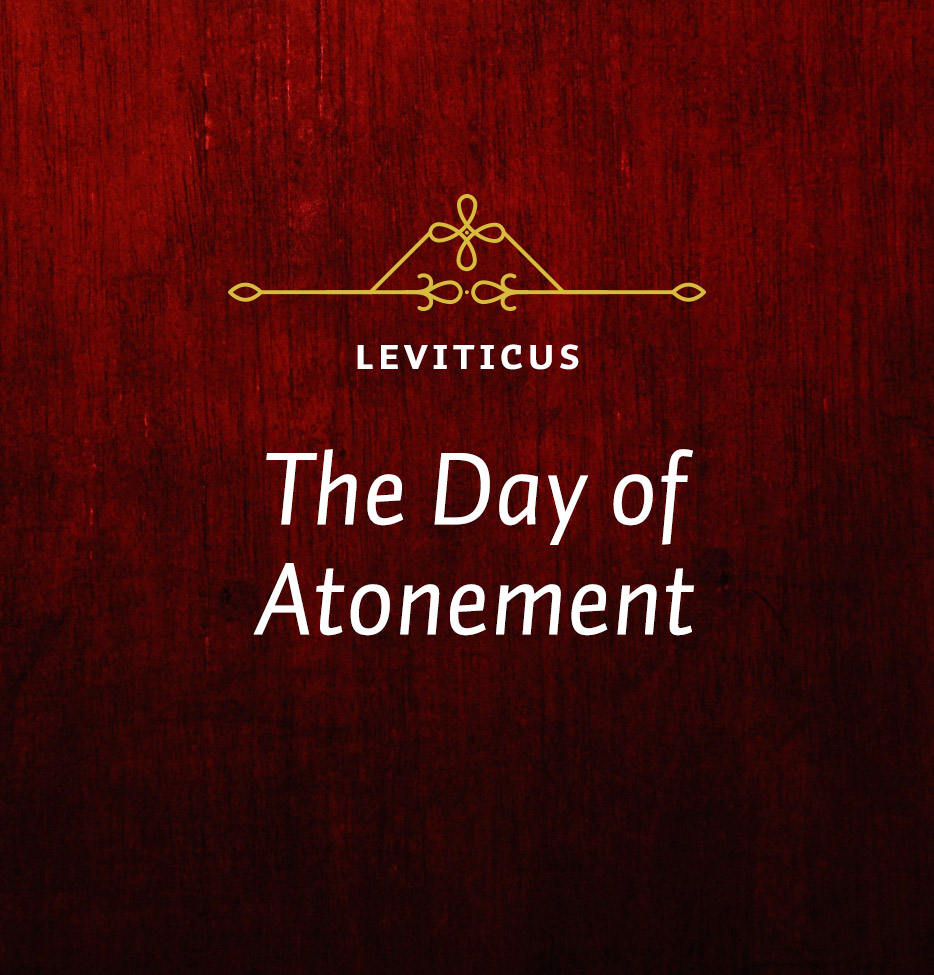How do we apply this? As you compare Scripture with Scripture, and especially as you look to the New Testament for the light it throws on the Old Testament, you find not only that the New Testament gives us the right understanding of the Old Testament, but you also find that it applies it for you. And that is nowhere more apparent than in what took place here on the Day of Atonement, which is interpreted and applied in the book of Hebrews. This letter deals with all these Jewish types, and the whole point of Hebrews is that they are fulfilled in Jesus Christ.
Hebrews 9-10 deals with these sacrifices, and it is a helpful study to compare these two chapters with Leviticus 16. Hebrews itself makes a number of applications in those two chapters, but I want to give the four main ones.
The first application is from Hebrews 9:22, which says that “without the shedding of blood there is no forgiveness.” There is no forgiveness for sins apart from death. So if your sin is not covered by the blood of Jesus Christ, you will have to pay for it yourself. You are going to have to die spiritually, as well as physically, for your sin. That points to the unique importance of what Jesus Christ did.
The second application is found in Hebrews 9:28: “Christ was sacrificed once to take away the sins of many people.” The Old Testament sacrifices had to be repeated again and again. The Day of Atonement was only once a year, but every year it had to take place. Hour by hour, day by day, week by week, and year by year, sacrifices were made by generation upon generation of Jewish priests.
But when the Lord Jesus Christ came to earth, He sacrificed Himself once and thereby accomplished for good all that needed to be done. The next chapter of Leviticus says, “For the life of the creature is in the blood, and I have given it to you to make atonement for yourselves on the altar; it is the blood that makes atonement for one’s life” (Lev. 17:11). Therefore it’s through the atoning blood of Christ that we have everything that we need. In the New Testament, we find that the blood of Jesus Christ is that which gives us redemption (1 Pet. 1:18-19), forgiveness (see Eph. 1:7), justification (see Rom. 5:9), spiritual peace (see Col. 1:20), and holiness (see Heb. 10:10; 13:12). Jesus did it all. There is no more that needs to be accomplished.
The third application is seen in Hebrews 10:4, which states: “It is impossible for the blood of bulls and goats to take away sins.” Not only do we need to know that Jesus Christ fulfilled all those types and achieved salvation for us, but we also have to know that nobody else can do it. The sacrifices were given by God and played their role. They were to explain in vivid imagery what it was that Jesus Christ would do. That’s why it is worthwhile to study and visualize the ark, the sacrifices, and the mercy seat. All of that gives us a way of understanding what Jesus Christ did. But none of that took away sin. You have to come to faith in Him, because it’s Jesus Christ or nothing.
The last application is from Hebrews 10:21-22, which tells us that “since we have a great high priest over the house of God, let us draw near to God with a sincere heart in full assurance of faith…” That is a verse that might be used in prayer, but in the context of Hebrews it’s talking about faith in Jesus Christ as the Savior. Hebrews was written to Jewish people who had heard the Gospel, who were even enamored with it, and who maybe to a certain extent had believed it. But they were still trying to hang on to all their Old Testament types and shadows.
What the author of Hebrews is telling them is that they’ve got to give that up because the fulfillment has come. They’re not going to be saved by the blood of sheep and goats, or by reenacting the Day of Atonement. Instead, everyone must draw near in full assurance of faith in Jesus Christ and come to salvation.
A few verses later, it warns those who are failing to do that. This is one of the strongest warnings in Scripture, given to those who know the way of salvation but who are not fully embracing it—those who do not just sin in outward ways, but who commit the sin of unbelief. We read, “If we deliberately keep on sinning after we have received the knowledge of the truth, no sacrifice for sins is left, but only a fearful expectation of judgment and of raging fire that will consume the enemies of God” (Heb. 10:26-27).
The same book that presents the way of salvation in such vivid imagery, pointing us to Jesus Christ, also speaks very clearly of the holy God’s judgment of unholy men and women’s sin. If you’re not trusting Christ, you have nothing to look forward to in the life to come but that dreadful judgment.
Don’t draw back. Don’t continue on in the sin of unbelief. But, rather, press forward into the kingdom, believing in Jesus Christ and seizing the cross, knowing that by His death the veil has been torn and the way is opened into God’s presence forevermore. Let your prayer be that of the tax collector, who said, “God be merciful to me, a sinner.”






